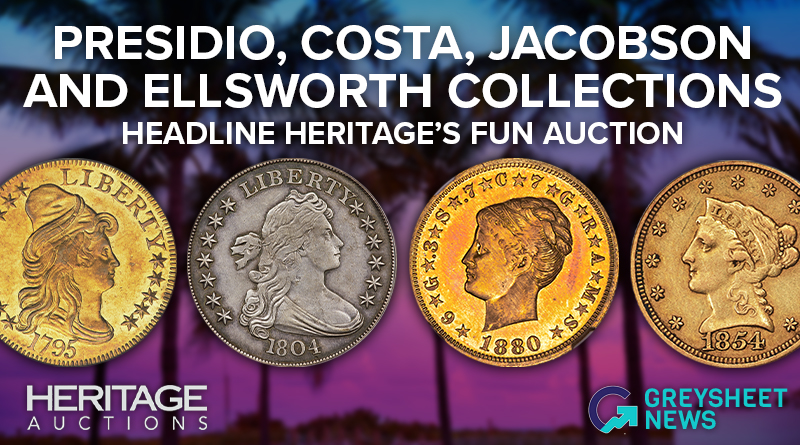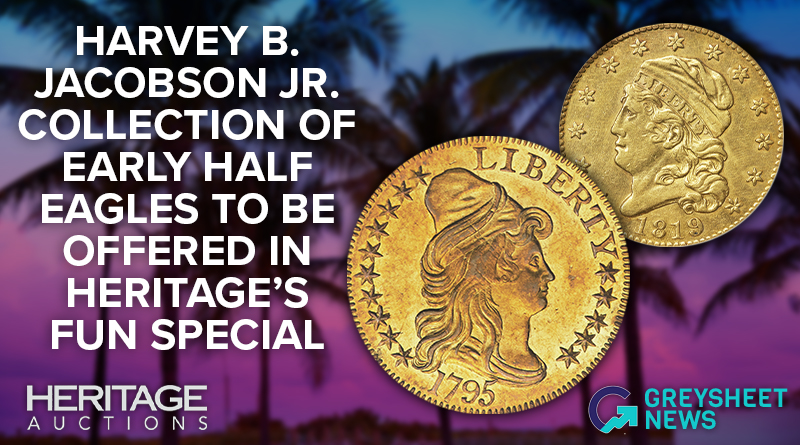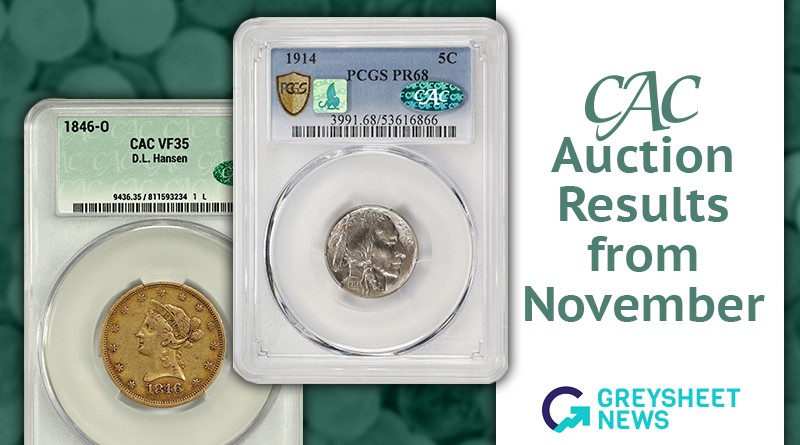Greysheet & CPG® PRICE GUIDE
- U.S. Coins /
- American Eagles /
-
$10 Platinum Eagles (1997–2008) Values
About This Series
The $10 platinum eagle is the smallest platinum coin that has been issued by the United States Mint. This makes these coins, smaller than a dime by physical breadth, excellent for individuals who wish to obtain platinum at a relatively low price point. While regular uncirculated examples are about equally common from issue to issue, the burnished specimens struck in 2006, 2007, and 2008 have tiny mintages of less than 6,000 pieces and are scarcer, and more expensive, than typical examples.
Catalog Detail
Legal Disclaimer
The prices listed in our database are intended to be used as an indication only. Users are strongly encouraged to seek multiple sources of pricing before making a final determination of value. CDN Publishing is not responsible for typographical or database-related errors. Your use of this site indicates full acceptance of these terms.
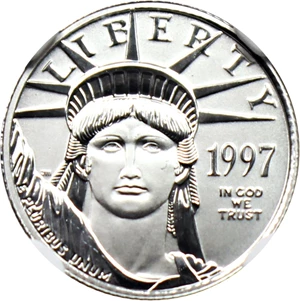
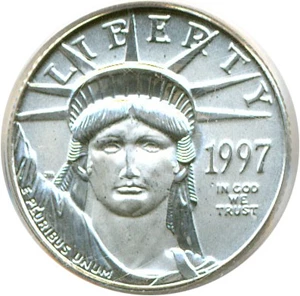
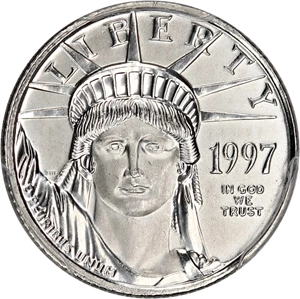
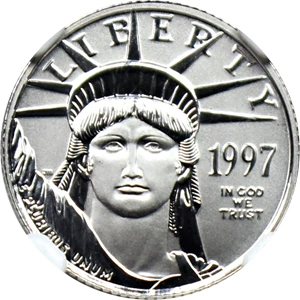
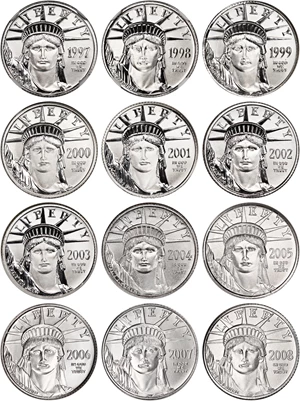
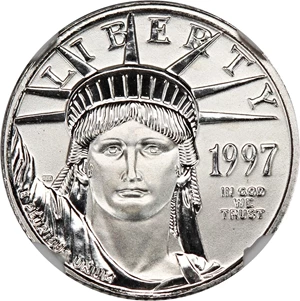
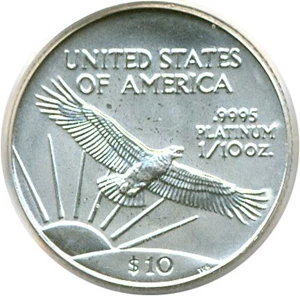
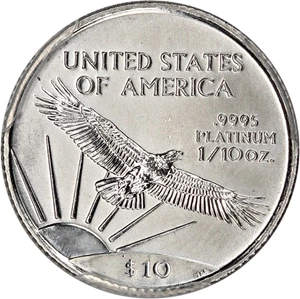
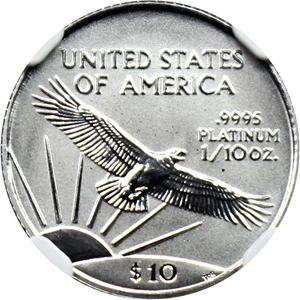
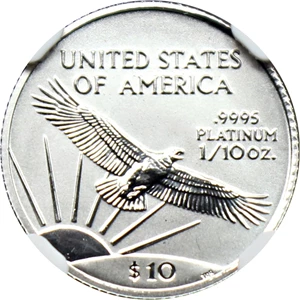
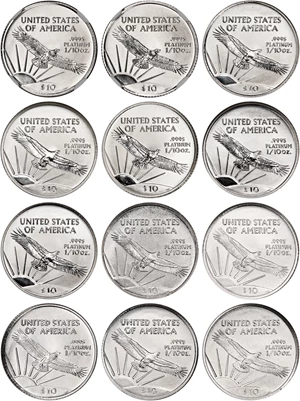


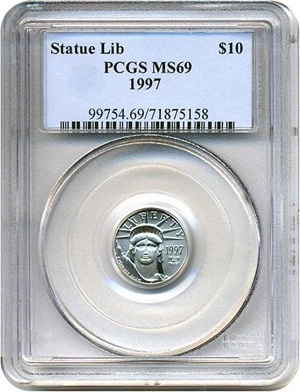

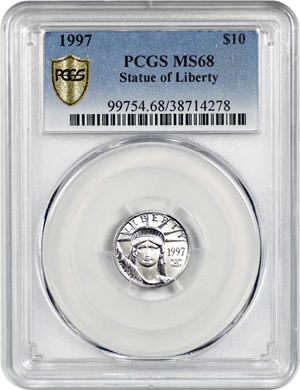
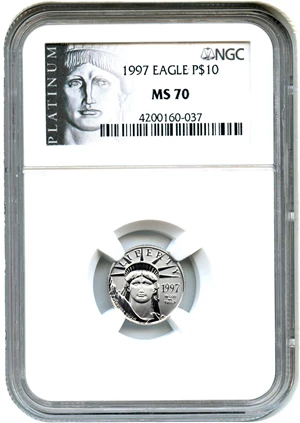
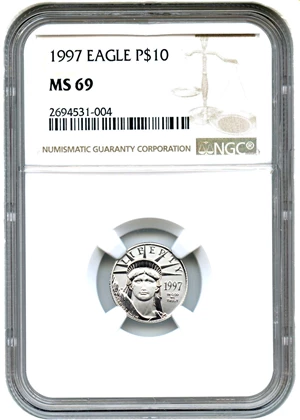
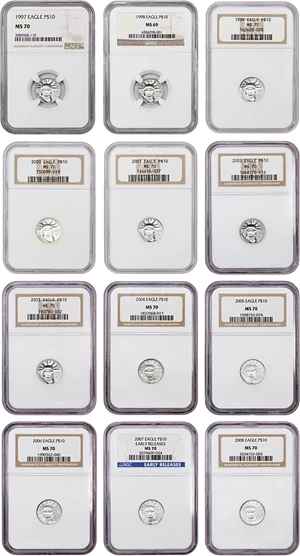
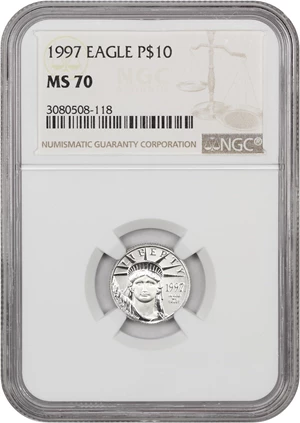
| $10 Platinum Eagles (1997–2008) | Value Range | Favorite | |||
|---|---|---|---|---|---|
| $10 Platinum Eagles (1997–2008) | Value Range | ||||
|
$310
-
$385
$310 - $385
|
||||
|
$310
-
$1,250
$310 - $1,250
|
||||
|
$310
-
$4,500
$310 - $4,500
|
||||
|
$310
-
$1,500
$310 - $1,500
|
||||
|
$950
-
$3,150
$950 - $3,150
|
||||
|
$310
-
$650
$310 - $650
|
||||
|
$310
-
$575
$310 - $575
|
||||
|
$310
-
$410
$310 - $410
|
||||
|
$310
-
$575
$310 - $575
|
||||
|
$310
-
$450
$310 - $450
|
||||
|
$310
-
$385
$310 - $385
|
||||
|
$310
-
$385
$310 - $385
|
||||
|
$525
-
$975
$525 - $975
|
||||
|
$310
-
$410
$310 - $410
|
||||
|
$390
-
$725
$390 - $725
|
||||
|
$310
-
$385
$310 - $385
|
||||
|
$455
-
$850
$455 - $850
|
||||
From the Greysheet Marketplace
Buy Now: $500.00
Buy Now: $455.00
Buy Now: $625.00
Buy Now: $625.00
Auction Ends: 1/5/2026
Auction Ends: 1/5/2026
Auction Ends: 1/5/2026
Auction Ends: 1/5/2026
Auction Ends: 1/5/2026
Buy Now: $1,063.75
Related Stories (powered by Greysheet News)
View all news
Greysheet Catalog Details
The $10 platinum eagle is the smallest platinum coin that has been issued by the United States Mint. This makes these coins, smaller than a dime by physical breadth, excellent for individuals who wish to obtain platinum at a relatively low price point. While regular uncirculated examples are about equally common from issue to issue, the burnished specimens struck in 2006, 2007, and 2008 have tiny mintages of less than 6,000 pieces and are scarcer, and more expensive, than typical examples.
Catalog Detail
Legal Disclaimer
The prices listed in our database are intended to be used as an indication only. Users are strongly encouraged to seek multiple sources of pricing before making a final determination of value. CDN Publishing is not responsible for typographical or database-related errors. Your use of this site indicates full acceptance of these terms.










 Loading more ...
Loading more ...








